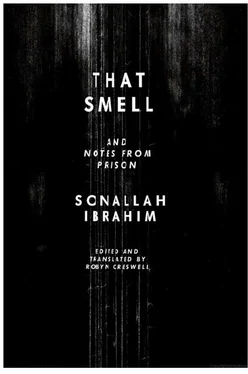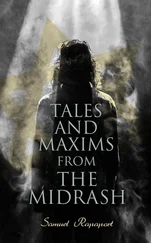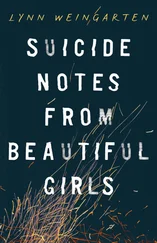Sonallah Ibrahim - That Smell and Notes From Prison
Здесь есть возможность читать онлайн «Sonallah Ibrahim - That Smell and Notes From Prison» весь текст электронной книги совершенно бесплатно (целиком полную версию без сокращений). В некоторых случаях можно слушать аудио, скачать через торрент в формате fb2 и присутствует краткое содержание. Год выпуска: 2013, Издательство: New Directions, Жанр: Современная проза, на английском языке. Описание произведения, (предисловие) а так же отзывы посетителей доступны на портале библиотеки ЛибКат.
- Название:That Smell and Notes From Prison
- Автор:
- Издательство:New Directions
- Жанр:
- Год:2013
- ISBN:нет данных
- Рейтинг книги:4 / 5. Голосов: 1
-
Избранное:Добавить в избранное
- Отзывы:
-
Ваша оценка:
- 80
- 1
- 2
- 3
- 4
- 5
That Smell and Notes From Prison: краткое содержание, описание и аннотация
Предлагаем к чтению аннотацию, описание, краткое содержание или предисловие (зависит от того, что написал сам автор книги «That Smell and Notes From Prison»). Если вы не нашли необходимую информацию о книге — напишите в комментариях, мы постараемся отыскать её.
Notes from Prison
That Smell and Notes From Prison — читать онлайн бесплатно полную книгу (весь текст) целиком
Ниже представлен текст книги, разбитый по страницам. Система сохранения места последней прочитанной страницы, позволяет с удобством читать онлайн бесплатно книгу «That Smell and Notes From Prison», без необходимости каждый раз заново искать на чём Вы остановились. Поставьте закладку, и сможете в любой момент перейти на страницу, на которой закончили чтение.
Интервал:
Закладка:
Ibrahim’s dilemma might be thought of in this way: how to write oppositional art when the regime in power has already stolen your best lines? The attractiveness of Yevtushenko, it would seem, is that he briefly supplied a model for how one might remain a Communist despite communism — or, as he writes in his memoir, how one maintains “faith in the original purity of the revolutionary idea despite all the filth that has since desecrated it.” It is from the Soviet writers that Ibrahim gets his obsession with “telling the truth,” an idea that crops up incessantly in the writings of Yevtushenko and others quoted in the Notes . For the Soviets, this meant telling the truth about Stalin and the Gulag. For Ibrahim, it meant telling the truth about Nasserism.
But what is the style of truth telling? Here is where the second, somewhat more surprising feature of these diaries appears, their immersion in American literature and especially in Hemingway. A long series of notes from June 1963 concern Carlos Baker’s book, Hemingway, the Writer as Artist , which had been recently translated into Arabic by the Palestinian scholar Ihsan Abbas. Ibrahim’s notes focus on The Green Hills of Africa , Hemingway’s 1935 account of a hunting trip on the Serengeti Plain. Ibrahim quotes from Baker’s citation of a long discussion between Hemingway and Pop, another hunter, where they discuss what it’s like to witness a revolution. The conversation also serves as a statement of literary method. Hemingway as himself says about revolutions,
It’s very hard to get anything true on anything you haven’t seen yourself because the ones that fail have such a bad press and the winners always lie so. Then you can only really follow anything in places where you speak the language. That limits you of course. That’s why I would never go to Russia. When you can’t overhear it’s no good. All you get are handouts and sight-seeing. Any one who knows a foreign language in any country is damned liable to lie to you. If I ever write anything about this, it will just be landscape painting until I know something about it. Your first seeing of a country is a very valuable one. Probably more valuable to yourself than to any one else, is the hell of it. But you ought to always write it to try to get it stated. No matter what you do with it.
You ought to always write it to try to get it stated. The phrase is underlined in Ibrahim’s diary. The Arabic translation reads, “ Uktub, uthbit ma tarahu wa-ma tasma‘uhu ”: “Write, set down what you see and hear.” It is clear that Ibrahim’s minimalism owes something to Hemingway, a fact I have tried to keep in mind in my own translation. Might this iconic, endlessly imitated style come back to English readers, made strange and new after a detour through Cairo? Ibrahim takes other tips from Hemingway. The technique of italicized flashback, used several times in That Smell , is borrowed from Hemingway’s short story, “The Snows of Kilimanjaro.” But what appears to have struck Ibrahim most about Hemingway is the American writer’s commitment to the quotidian, to the truth of what he sees and hears. Ibrahim proves that this style, unbuttressed by commentary, could make its own revolutionary statement. (Equally interesting, of course, is what Ibrahim doesn’t take from Hemingway: macho posturing is not in his narrator’s repertoire.)
The third central concern of these notebooks is with the varieties of realism. This was a live issue in Egyptian literary circles at the time. Socialist realism was a dominant mode of the previous decade, most notably in Abd al-Rahman al-Sharaqwi’s The Earth (1952), a novel of class conflict in a village of the Nile Delta. The Earth was celebrated by proponents of engagé literature and spawned a host of imitators. But by the early sixties, in the wake of Khrushchev’s revelations, socialist realism was considered by many, even on the left, as the house style of Stalinism. Another strain of realism, what we might call classical realism, culminated in the novels of Naguib Mahfouz. His suite of historical fictions, The Cairo Trilogy ,is a minute and comprehensive depiction of Egyptian life in the first half of the twentieth century, refracted through the prism of a well-to-do family. But the conventions of classical realism, which presume a relatively stable class system to anchor its ambitious survey of social life, were unable to represent the shifts brought about by Nasser’s reforms. The explosion of a lower middle-class population, largely employed by the expansionist state, and the resultant consumer society with its characteristic entertainments (movies, television, popular clubs) and objects of desire (refrigerators, electronics, suits), proved too much new material to squeeze into the strictures of Mahfouzian technique. In order for realism to remain realistic — this is Ibrahim’s insight — it would have to become experimental.
In this sense, Notes from Prison can be read as a late episode in the debate between Realism and Modernism among intellectuals such as Georg Lukács, Berthold Brecht, and Walter Benjamin during the 1930s and ’40s — the great age of speculation about the relationship between politics and literature. Those debates were still alive in the pages of La Nouvelle Critique , albeit in simplified form, and both Lukács and Brecht make appearances in Ibrahim’s reading diary. For these writers the chief question was how to create a modern art form that would, in Marx’s words, force mankind “to face with sober senses the real conditions of their lives and their relations with fellow men” — with the ambition, ultimately, to transform those conditions. If this goal now seems grandiose, that speaks to the reduced place literature holds in our own life rather than a flaw in the ambition. Ibrahim’s response to this question, as evidenced by the Notes and his novel, was to focus on the terrain of the everyday. His fiction suggests that it is within the workday routine of gossip, casual consumption, and bodily experience — washing, eating, sex — that politics are most immediately felt and known. This is true even or especially when what one feels most of all is the absence of politics. It is his concern for the quotidian that seems to explain Ibrahim’s notes on the films of Italian Neo-Realism and cinema verité. And indeed the narrator of That Smell acts as a kind of camera, recording the life around him while abstaining from comment.
Except in a few cases, Ibrahim did not have access to the texts mentioned in the Notes in the original language, or even in translation. He did not read the novels or poems, and did not see the films that he worried over for hundreds of pages. Instead, he imagined them as they were described or excerpted in the pages of Cairo’s cultural supplements, French journals, and American magazines. (For this edition, I have tried to locate the works cited by Ibrahim, but have based my translations on the Arabic of the Notes , even when that version is different from the original.) Ibrahim’s Hemingway is, in this sense, a dream of Hemingway, a famous style filtered through a scrim of secondary and tertiary literature, as well as translations. Perhaps this way of reading is what made it easy for Ibrahim to pick and choose what he found useful for his own work. To cobble together bits of Solzhenitsyn with bits of The Green Hills of Africa and bits of other things and come up with a style unique in Arabic literature. This search for models — “influence” is too passive a word to describe what Ibrahim is doing; it is more like bricolage — was made under severe restrictions. His library was limited to whatever the jailers picked up in the kiosks, or friends on the outside thought would be good for him to read. It is not by chance that in later work such as The Committee or Zaat , the protagonists are literary scavengers, collectors of ephemera, people who cannot help picking up the newspaper but never entirely believe what they read there.
Читать дальшеИнтервал:
Закладка:
Похожие книги на «That Smell and Notes From Prison»
Представляем Вашему вниманию похожие книги на «That Smell and Notes From Prison» списком для выбора. Мы отобрали схожую по названию и смыслу литературу в надежде предоставить читателям больше вариантов отыскать новые, интересные, ещё непрочитанные произведения.
Обсуждение, отзывы о книге «That Smell and Notes From Prison» и просто собственные мнения читателей. Оставьте ваши комментарии, напишите, что Вы думаете о произведении, его смысле или главных героях. Укажите что конкретно понравилось, а что нет, и почему Вы так считаете.












